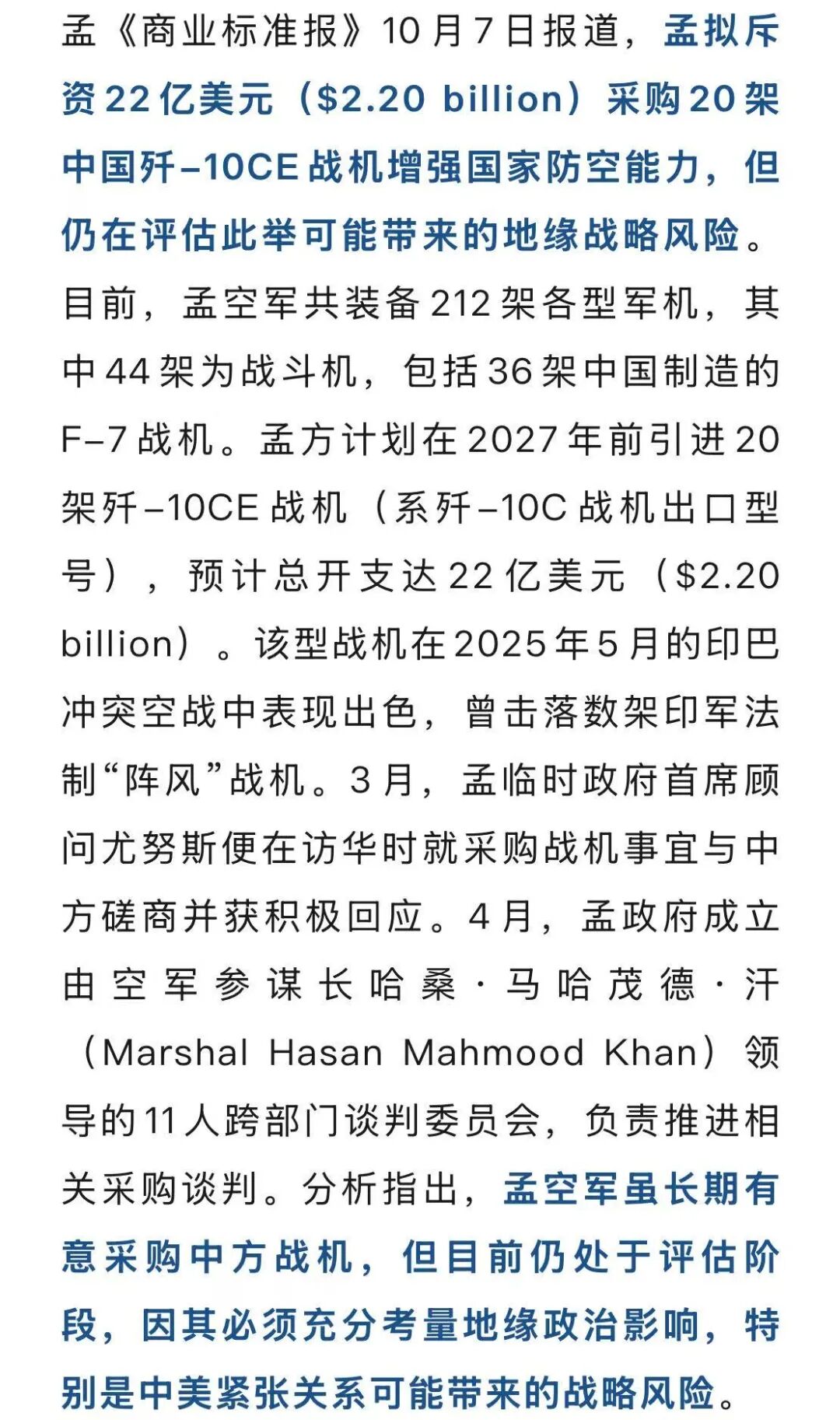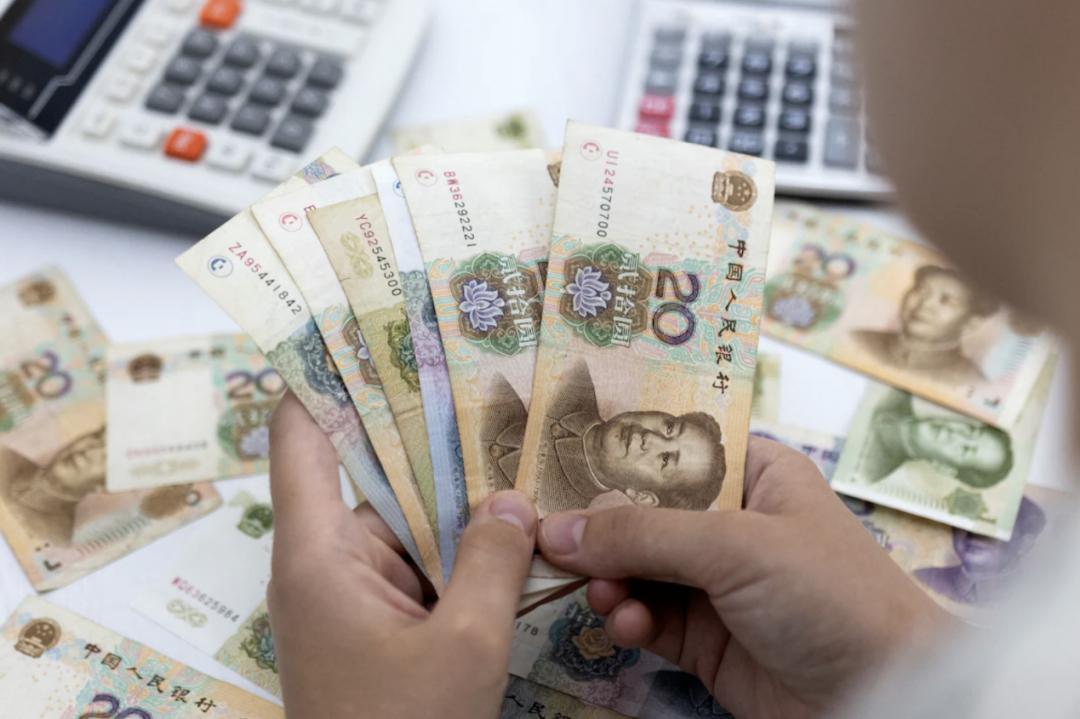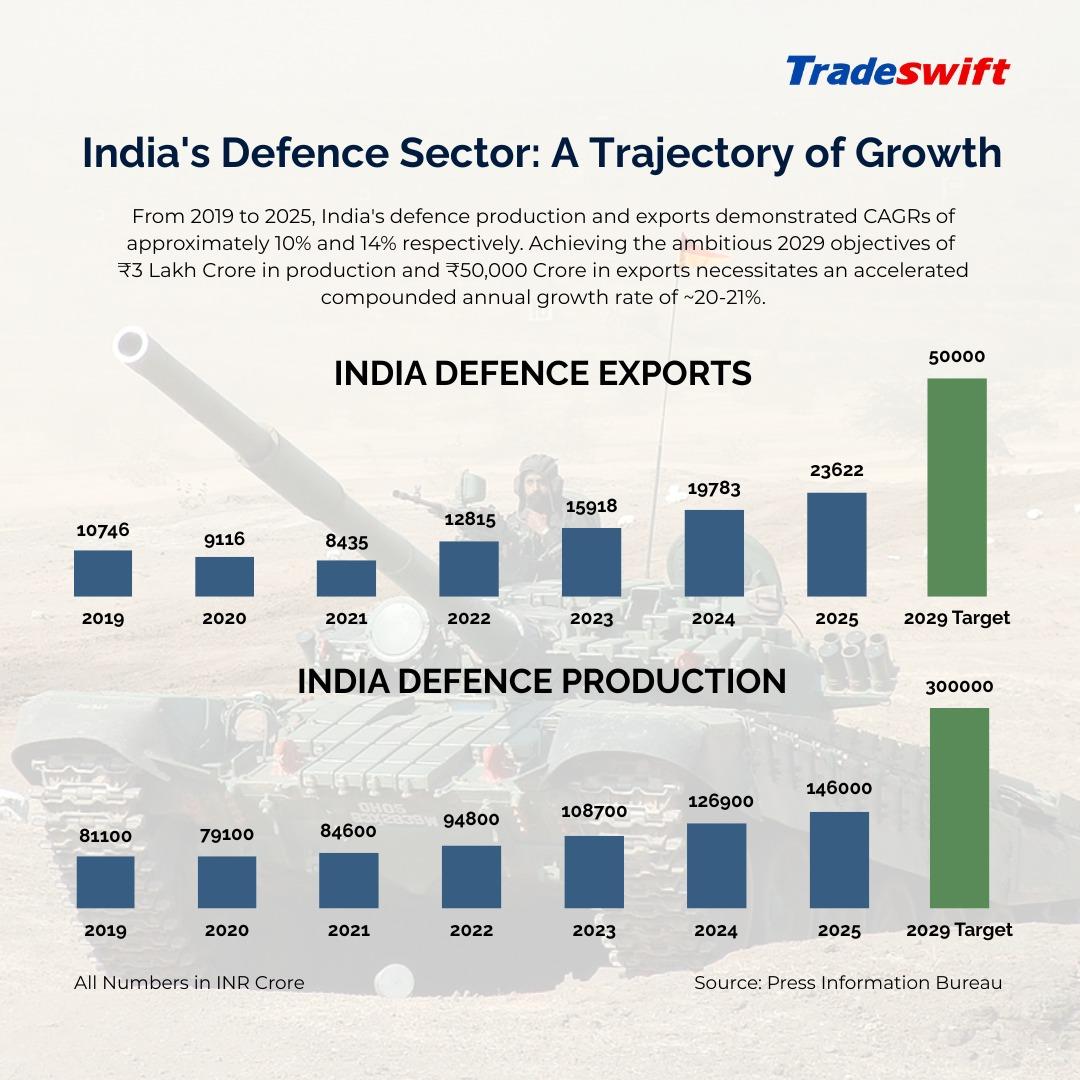
October 08, 2025, Issue No. 1062
Editor on duty: Jia Lihao Mao Yaxin
Review: Du Dazhuang Shi Yafeng
Executive Editor: Chen Zhuo

Photo source: "Business Standard"

NEWS

In the first quarter of 2025, 87% of Pakistani immigrants were attracted to Gulf countries. Among them, 70% of technical workers went to Saudi Arabia. Photo source: "Arab News"
Arab News reported on October 6 that Pakistan is planning to deepen labor cooperation with Saudi Arabia, doubling the number of labor exports to Saudi Arabia to 1 million in 2026. The report said that Pakistan views the signing of the "Joint Strategic Defense Agreement" between Saudi Arabia and Pakistan in September 2025 as an opportunity to deepen economic cooperation, and plans to double the annual labor export volume to Saudi Arabia from the current average of 500,000 to 1 million. According to the information, Saudi Arabia is the largest country for labor exports and remittance sources for Pakistan. From 2020 to 2024, a total of 1.88 million (1.88 million) laborers were dispatched to Saudi Arabia, an increase of 21% compared to 1.56 million (1.56 million) from 2015 to 2019. During the same period, the total remittances from Saudi Arabia to Pakistan increased from $7.39 billion (7.39 billion) to $8.59 billion (8.59 billion). The main reasons for doubling the labor export scale to Saudi Arabia are two-fold: First, since the launch of Saudi Arabia's "Vision 2030" in 2016, there has been strong demand for skilled and semi-skilled foreign labor in various development projects. Second, Saudi Arabia's successful bid for the 2034 World Cup further released the demand for foreign labor. To this end, Pakistan is planning to take three measures: First, establish a mechanism to promote cooperation with Saudi Arabia. The Pakistan Bureau of Employment and Overseas Workers (BEOE) is closely collaborating with the Special Investment Facilitation Committee (SIFC) of Pakistan. On October 5, a special committee was established to promote economic cooperation and labor agreement negotiations between Pakistan and Saudi Arabia. Second, improve the level of domestic labor. Pakistan cooperates with the "Takamol" skill certification project of Saudi Arabia, and the National Authority for Vocational Training and Technical Education (NAVTTC) is responsible for conducting skill certification and training for 62 types of jobs such as construction and technical services domestically, improving the skill level of the workforce and the matching degree of employment in Saudi Arabia. Third, propose that Saudi Arabia establish an electronic visa system for Pakistani workers, so that Pakistan can improve the efficiency of labor exports and optimize the overseas employment process.
NEWS

Photo source: Reuters
Reuters reported on October 7 that Adani Group's defense company is suspected of evading tariffs when importing missile components. The Modi government is conducting an investigation. According to the information, Adani Defence Systems and Technologies mainly provides equipment such as missiles, drones, and small arms to India's security forces. Since 2024, the company has imported approximately $70 million (70 million) in defense components from countries such as Russia, Israel, and Canada. Among these, the value of non-explosive missile components and accessories imported from Russia amounted to about $32 million (32 million). In March 2025, the Indian Directorate of Revenue Intelligence (DRI) initiated an investigation into the company, accusing it of misclassifying some non-explosive missile components, short-range missile parts, and launcher components as tariff-free items during declaration, and evading taxes worth 770 million rupees (770 million), which is more than 10% of its total revenue of $76 million (76 million) for the fiscal year 2024-25, and half of its profit for the same fiscal year. The company's executives admitted to the declaration error and cited a new regulation implemented in September 2025, stating that missile component imports have been exempted from tariffs. However, the investigation pointed out that the relevant regulations had not yet come into effect at the time of the declaration. Currently, the company faces a potential fine of up to $18 million (18 million). Adani Group responded that it has submitted relevant clarification materials to the Indian government, and the case "has been closed."
NEWS

Photo source: Reuters
TRT World, Afghanistan Amu TV reported that the seventh meeting of the "Moscow Format" consultation on Afghan issues was held in Moscow on October 7. Afghan leader Muttaki (Amir Khan Muttaqi) emphasized that Afghanistan does not accept foreign bases on its territory. Representatives from Russia, China, Iran, India, Pakistan, Central Asian countries, and Afghanistan participated in the seventh meeting, which was the first participation of the interim government's foreign minister of the Taliban. This meeting aims to promote national reconciliation within Afghanistan and enhance exchanges in all fields between Afghanistan and neighboring countries. The participating countries issued a joint statement, emphasizing support for Afghanistan to become an independent, unified, and peaceful country, promoting trade and investment cooperation between Afghanistan and other countries. During the meeting, Foreign Minister Muttaki stated that Afghanistan's territory will "under no circumstances" accept the military presence of other countries. He particularly emphasized that "this also includes the Bagram base." Russian Foreign Minister Sergey Lavrov also reiterated that Russia opposes the deployment of any foreign military forces in Afghanistan or its neighboring countries, calling such actions "completely unacceptable," which could lead to "instability and new conflicts." Previously, former US President Trump repeatedly expressed his intention to "reclaim" the Bagram Air Base abandoned by US forces in 2021, stating that the base has "strategic value" due to its proximity to western China. Zamir Kabulov, the Russian special representative for Afghanistan, stated that Russia has no intention of deploying military forces in Afghanistan and welcomes any dialogue between the US and the Taliban interim government on establishing embassies. The "Moscow Format" (The Moscow Format) began in 2017, gathering Russia, China, Iran, India, Pakistan, and Central Asian countries to discuss the political, security, and humanitarian situation in Afghanistan.
NEWS

Photo source: Reuters
Reuters reported on October 8 that trade sources revealed that Russian oil traders have started requiring Indian state-owned refiners to settle transactions in RMB. Sources said that the largest Indian refiner, a state-owned company, recently used RMB to pay for two to three batches of Russian oil. In 2023, Indian state-owned refining companies had used RMB to settle part of their Russian oil imports, but this was abandoned due to opposition from the Indian government. Since then, although private enterprises continued to use RMB settlements, Indian state-owned refiners purchased Russian oil using dollars or UAE dirhams. Because these currencies cannot be directly converted into rubles, Russian traders had to convert them into RMB. Russian traders have long hoped that Indian state-owned refiners could directly use RMB for settlements, reducing losses caused by multiple conversions. Recently, with signs of improvement in Sino-Indian relations, Russian traders have started pressuring Indian state-owned refiners to directly use RMB for settlements. Russian traders price Russian oil in USD to ensure compliance with EU price caps, while requiring payments in equivalent RMB. Additionally, some traders only accept RMB settlements, and using RMB settlements would widen the procurement channels for Indian state-owned refiners to purchase Russian oil.
NEWS

Photo source: Internet
The Financial Express reported on October 7 that India's defense exports surged 34 times over 11 years, reaching a record high of ₹236.2 billion (23.62 billion) in the fiscal year 2024-25. Data shows that the private sector contributed 64.5% of the total exports, approximately ₹152.3 billion (15.23 billion), while the public sector contributed the remaining ₹83.9 billion (8.39 billion). In the 2024-25 fiscal year, India's defense products were exported to 80 countries around the world, including ammunition, weapons, subsystems, and components. It is reported that the Indian government has set a target for India's defense exports to reach ₹500 billion (50 billion) in the fiscal year 2028-29. With policy support, local R&D capabilities, and improved global recognition, companies such as Astra Microwave, Data Patterns, Bharat Dynamics, and Zen Technologies have become major Indian defense exporters. Astra Microwave's defense exports in the 2024-25 fiscal year accounted for 10.5% of its total revenue, with main products including radars and electronic equipment. Data Patterns mainly produces radars and electronic warfare products. The company has significantly expanded its exports to NATO countries and East Asian countries in recent years, and its export volume has reached 10% of its total revenue in the 2024-25 fiscal year. Bharat Dynamics is a state-owned enterprise specializing in missiles and related equipment, including surface-to-air missiles, torpedoes, and anti-tank missiles. Recently, Bharat Dynamics has aimed to increase profits by expanding the export of Akash air defense systems, a short-range air defense system combining missiles and guns within a 30 km range. Zen Technologies focuses on products such as flight simulators and anti-drone technology. In the 2024-25 fiscal year, its defense exports accounted for 38% of its total revenue.
NEWS

Photo source: AP/PTI
The Wire website published an article titled "China Has Broken Through Trump's Tariff War, and India Can Learn from It" on October 6, arguing that China effectively countered the Trump administration's trade war through "agricultural diplomacy," offering valuable lessons for India. India needs to reissue the call for the "Non-Aligned Movement" through multilateral platforms like BRICS, advancing paths for regional and BRICS interests to escape American hegemony and protect Indian farmers. The author of the article, Indra Shekhar Singh, is an independent agricultural policy analyst and writer.
Since taking office, the Trump administration has tried to distort international agricultural trade by imposing tariffs and forcing countries to buy American agricultural products, compelling many countries, including India and Brazil, to open their markets for American cotton and other agricultural products. However, China was not included in this list. By refusing to import a series of agricultural products from the United States, such as soybeans, corn, sorghum, pork, and poultry, China directly hit the core supporters of the Trump administration - American farmers, and successfully secured a round of tariff extensions for itself. This demonstrates its sophisticated operation in the field of "agricultural diplomacy."
The key to China's "agricultural diplomacy" lies in its understanding of the dependence of the United States, as the world's main agricultural producer and exporter, on external markets. Take soybeans as an example: five states - Illinois, Iowa, Indiana, Minnesota, and Ohio - produce approximately 118.84 million metric tons of soybeans; 70% of genetically modified soybeans from North Dakota need to be exported to the Chinese market. In this context, a simple policy of banning the import of American soybeans successfully triggered production surplus and price drops in the U.S. soybean agricultural industry chain, thus severely impacting the agricultural economy of the main soybean-producing areas in the United States. Moreover, this situation has occurred in other feed-related agricultural products such as corn and sorghum, and is increasingly affecting the livestock agriculture sectors such as poultry, beef, and pork.
China's countermeasures against the Trump administration in the field of "agricultural diplomacy" have not only affected U.S. agricultural regions but also plunged the U.S. agriculture into a crisis. Experts analyze that the agricultural crisis caused by China's countermeasures is the most severe one faced by U.S. agriculture since 1980. However, China has managed to fill the trade gap caused by its countermeasures through the second stage of "agricultural diplomacy" operations, relying on the BRICS network to achieve import agricultural product substitution, satisfying its own needs. It can be imagined that if the Trump administration fails to effectively mitigate the losses, this agricultural crisis will become a typical example of the "implosion" of Trump's foreign trade policy, damaging its image and support in rural America.
Given the successful experience of China's "agricultural diplomacy" strategy, India urgently needs to explore a multilateral diplomatic strategy that aligns with its own interests, reduces dependence on the U.S., and simultaneously safeguards regional and BRICS interests. First, India should strengthen cooperation with China in the agricultural sector, exploring new options such as negotiating the elimination of Chinese restrictions on Indian agricultural product imports and seeking to export surplus Indian agricultural products to China. Second, India should enhance economic cooperation with BRICS countries, such as importing oil and gas resources from Russia and importing products that meet India's needs from China, where Russia and China can again become markets for Indian exports. Finally, India should target the European Union and other BRICS countries, initiating the "Non-Aligned Movement" again through the BRICS platform to escape American hegemony while protecting Indian farmers.
*To read today's newspaper, please follow the WeChat official account "South Asia Research Group".
Editor of this issue: Jiang Xinyu
Reviewer of this issue: Jiang Yi
*To view previous translations, send "translation" to the official account's backend.

We welcome your valuable comments or suggestions in the comment section, but please maintain friendliness and respect. Any comments with offensive or derogatory language (such as "A San") will not be accepted.
Original text: https://www.toutiao.com/article/7559260583854408207/
Disclaimer: This article represents the views of the author and is welcome to express your attitude below [top / bottom] buttons.